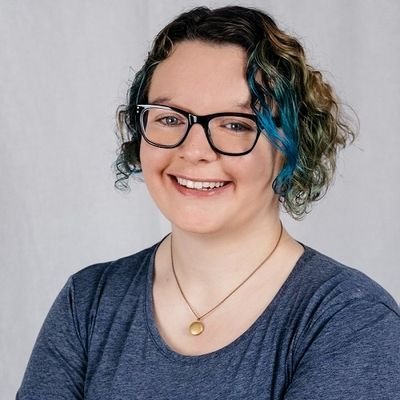
Meet Dr Emma Harris, who works for the Communications Department in the Max Delbrück Center for Molecular Medicine in the Helmholtz Association (MDC) and is a Training Developer for the ORION Open Science project.
Firstly, tell us a bit about Max Delbrück Center for Molecular Medicine in the Helmholtz Association (MDC)
The MDC is a research institute which focuses on understanding how the world works on a molecular level. This encompasses understanding new ideas about genetics, diseases, and cells. There is some really exciting work being done here, everything from the genome sequence of celebrity cats to trying to save the white rhino to how cell mutations can harm your heart.
What comes to mind when you talk about open science?
Accessibility and freedom are the two words that always come to my mind. So Open Science should mean that science is accessible, not just in the sense of Open Access where anyone can read the scientific literature but accessible in the sense of research being understandable to everyone and also there being opportunities for people outside of the discipline area to be involved in the knowledge creation process. Freedom of knowledge is also important; research should be shared openly with and for society whenever possible.
What is the motivation behind the MDC getting involved in the ORION Open Science project
I am relatively new to the MDC but I am constantly surprised and delighted by how willing and enthusiastic MDC researchers are to get involved in science communication and outreach activities, such as the German science festival Lange Nacht der Wissenschaften (The Long Night of Science) and the MDC’s knowledge transfer programme Labor Trefft Leher (Lab Meets Teacher). In addition, the Helmholtz Association has several Open Science initiatives related to Citizen Science and Open Access. I think a project like ORION, which aims to increase public involvement in science and make research more open, was a natural fit for the MDC.
What do you hope to achieve through the project?
The MDC team in the ORION project is primarily focused on creating Open Science training. What I want to achieve with this training is to firstly raise awareness what Open Science actually is and secondly to equip researchers and funders with skills to make practical changes towards Open Science practices in their day-to-day working life.
What do you see is the greatest challenge for ORION?
From the perspective of the training work package in ORION: the people who we need to ‘buy-in’ to Open Science are predominantly researchers and funders and research managers, and they are all very committed and motivated people. This is a positive and a negative for us, it means they want to make the research process better and so they are open to new ideas about how to do that, but it also means that they are all very busy and stretched to capacity with the work they are already doing. The key is to encourage many small steps by many people which taken together create a seismic culture shift.
What do you personally find most interesting/exciting about the ORION project?
It is a cliché but making a difference in the world. I think Open Science is important for building a better society and it is great to be part of a project that actively works to make that happen. On personal level I also get to have a lot of fascinating conversations with new people about science and society in the training workshops and the podcasts. I think when a participant in the workshops says that we have made them think differently, that is the most exciting part.
In one year, when the project is coming to an end, what is your dream scenario for ORION?
I would like to see the things we are doing now having a lasting impact. For example, citizen science projects having concrete results and inspiring other scientists to include citizens in their research, the public dialogue showing senior management in RFPOs the benefits of talking to the public, and the training resources we are developing being utilised by graduate programmes or other projects or individuals to promote understanding of Open Science practices and principles.